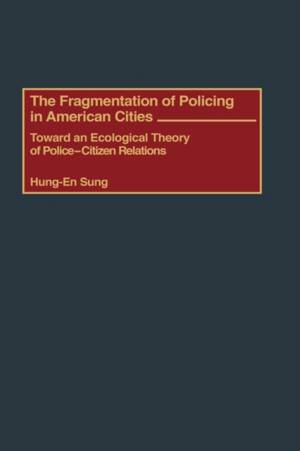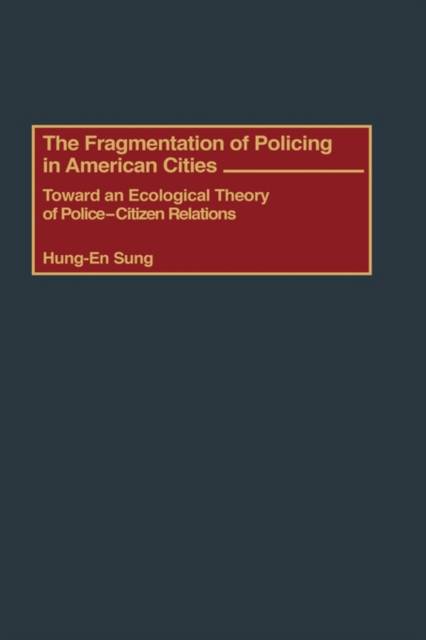
- Afhalen na 1 uur in een winkel met voorraad
- Gratis thuislevering in België vanaf € 30
- Ruim aanbod met 7 miljoen producten
- Afhalen na 1 uur in een winkel met voorraad
- Gratis thuislevering in België vanaf € 30
- Ruim aanbod met 7 miljoen producten
The Fragmentation of Policing in American Cities
Toward an Ecological Theory of Police-Citizen Relations
Hung-En SungOmschrijving
The relationship between police and the communities and citizens they serve has long been a topic of study and controversy. Sung provides a place-oriented theory of policing to guide strategies for crime control and problem-oriented policing. He contends that community policing is a product of power relations among communities. Sung also explores:
-how police and citizens interact with each other in stratified and residentially segregated communities
-how services are delivered by police
-how citizens respond to those charged with protecting them and enforcing the law
Illuminating the police-neighborhood and advancing a clear hypothesis for explaining and predicting changes in police behavior, this both provides a conceptual platform for public policy debate, planning, and evaluation of police, public safety, and democratic governance.
Specificaties
Betrokkenen
- Auteur(s):
- Uitgeverij:
Inhoud
- Aantal bladzijden:
- 184
- Taal:
- Engels
- Reeks:
Eigenschappen
- Productcode (EAN):
- 9780275973216
- Verschijningsdatum:
- 30/11/2001
- Uitvoering:
- Hardcover
- Formaat:
- Genaaid
- Afmetingen:
- 154 mm x 241 mm
- Gewicht:
- 458 g

Alleen bij Standaard Boekhandel
Beoordelingen
We publiceren alleen reviews die voldoen aan de voorwaarden voor reviews. Bekijk onze voorwaarden voor reviews.








